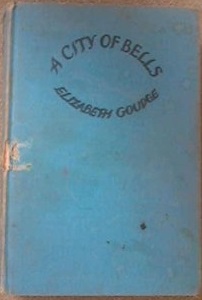 A City of Bells by Elizabeth Goudge
A City of Bells by Elizabeth Goudge Published by Coward McCann on 1936
Genres: Fiction
Format: Hardcover
Source: my personal collection
Add to Goodreads

Also by this author: The Little White Horse, Pilgrim's Inn, The Blue Hills
Review
When injured veteran Jocelyn Irvin arrives in the sleepy cathedral town of Torminster to live with his grandparents, Canon and Mrs Fordyce,, and his young cousins Hugh Anthony and Henrietta, he is only seeking peace and quiet. But what he finds are love, mystery and a new direction.
As Jocelyn opens a bookshop in Torminster, he is haunted (figuratively speaking) by the house’s previous tenant, a writer named Gabriel Ferranti, with whom Henrietta and Grandfather had struck up an odd friendship until Ferranti abruptly disappeared.
Impelled by the pleadings of his grandfather and Felicity Summers, the actress with whom Jocelyn is falling in love, and even more so by marked passages in the books Ferranti left behind, Jocelyn sets out to find out what happened to Ferranti. He discovers and deciphers the writer’s last work, and he and Felicity determine to produce it as a play. But is Ferranti alive or dead? And will the play be enough bring him back?
The plot of the novel is not entirely about Ferranti and his play, but Ferranti’s story is a darker thread woven through the brightness that is life in Torminster. There is something magical about Torminster that beats at the heart of the novel, a magic not born of fantasy but of good will, of kindness, of friendship and the power of love.
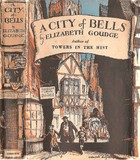 One of the things I treasure about A City of Bells is the characters. They’re all so delightfully individual. From the orphaned Henrietta with her artist’s sensitivity and her capacity for joy, to Hugh Anthony’s penchant for mischief; from Grandfather’s selflessness to Grandmother’s tart commonsense practicality; from Felicity’s glowing warmth to Jocelyn’s reserve and dogged determination, I love them all. Even the minor characters are deftly drawn: gentle little Miss Lavender; Felicity’s aunt, the eccentric Mrs. Jameson; the worldly Dean, and the saintly little Bishop.
One of the things I treasure about A City of Bells is the characters. They’re all so delightfully individual. From the orphaned Henrietta with her artist’s sensitivity and her capacity for joy, to Hugh Anthony’s penchant for mischief; from Grandfather’s selflessness to Grandmother’s tart commonsense practicality; from Felicity’s glowing warmth to Jocelyn’s reserve and dogged determination, I love them all. Even the minor characters are deftly drawn: gentle little Miss Lavender; Felicity’s aunt, the eccentric Mrs. Jameson; the worldly Dean, and the saintly little Bishop.
It’s Goudge’s peculiar genius to move easily between the adult world and that of children. She clearly never forgot what it was like to be a child, with all its dreams and fears and enchantments, and in writing Henrietta and Hugh Anthony, she helps us remember, too. Henrietta’s scenes in particular are among some of the best in the entire book.
And it’s clear that Goudge knew something of the theatre as well, for her descriptions of Ferranti’s verse play are vivid and compelling. In fact, all her visual depictions come alive, from Jocelyn’s first glimpse of Torminster dreaming in its quiet valley to a London thunderstorm. Torminster itself is based on Wells, the home of Goudge’s early childhood; her clergyman father taught in the cathedral school there until Elizabeth was 11. Her portrayal, based on her memories, makes the town and cathedral feel at once real and believable, and at the same time as unattainable as any paradise lost to the march of time and progress. In A City of Bells both city and town live again, albeit in a somewhat idealized state.
I have loved A City of Bells for over thirty years, and expect to go on re-reading it periodically for at least the next thirty. It is in some ways a timeless book, spanning both the century-plus since it takes place and the years between Henrietta’s youth and Grandfather’s age with ease. It’s a book I turn to for comfort and for peace, for a reminder of the joys and everyday magic of daily life.
Reread in January 2020 for the Elizabeth Goudge Book Club readalong.

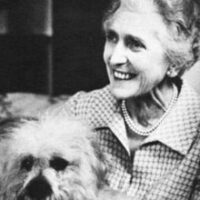
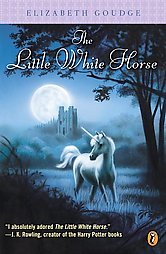
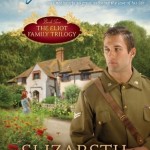
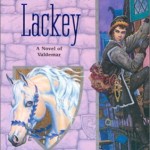

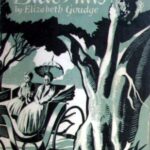
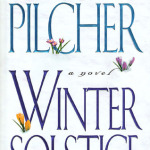
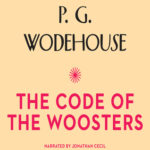
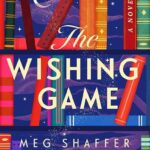









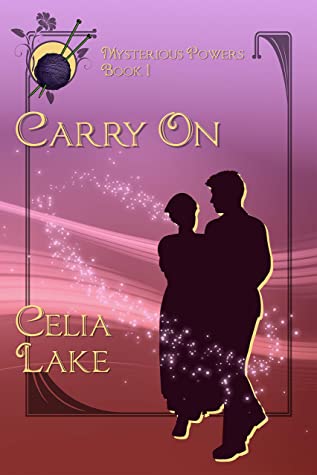


























Lory @ Emerald City Book Review
Thank you for covering the highlights of this lovely book. I hope more readers will find their way to it.
Lory @ Emerald City Book Review recently posted…Elizabeth Goudge Reading Week: The Curse of the Terrible Cover Art
Lark_Bookwyrm
Thank you, Lory!
Red Iza
Just like you, I’ve read it first about 30 years ago but come back to it from time to time, it’s such a wonderful novel 🙂
Red Iza recently posted…The Sunday post #45 : Blog break, time out, hiatus, whatever, is beginning now !
Lark_Bookwyrm
It certainly is!